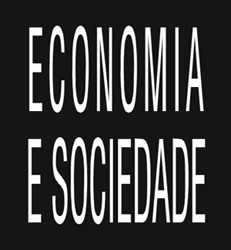|
Vining (1939)VINING, R. Suggestions of Keynes in the writings of Veblen. Journal of Political Economy, v. 46, n. 5, p. 692-704, 1939.; Dillard (1980)DILLARD, D. A monetary theory of production: Keynes and the Institutionalists. Journal of Economic Issues, v. 14, n. 2, p. 255-273, 1980.; Mouhammed (1999aMOUHAMMED, A. H. Veblen and Keynes: on the economic theory of the capitalist economy. Journal of Institutional and Theoretical Economics, v. 155, n. 4, p. 594-609, 1999a., 1999b)MOUHAMMED, A. H. Veblen and Keynes. Journal of International Politics, Culture and Society, v. 13, n. 2, p. 169-186, 1999b.; Wray (2007)WRAY, R. Veblen's Theory of business enterprise and Keynes's monetary economy of production. Journal of Economic Issues, v. 41, n. 2, p. 617-624, 2007. e Watkins (2015)WATKINS, J. P. Economic waste and social provisioning: Veblen and Keynes on the wealth effect. Journal of Economics Issue, v. 49, n. 2, p. 441-448, 2015.
|
Complementaridades (e por vezes diferenças) entre Keynes e Veblen, em âmbitos dos conceitos mais relevantes de ambas as formulações teóricas. |
|
Chasse (1991)CHASSE, J. D. John R. Commons e John Maynard Keynes: two philosophies of action. Journal of Economic Issues, v. 25, n. 2, p. 441-448, 1991.; Skidelsky (1994)SKIDELSKY, R. John Maynard Keynes - The economist as a Savior. London: Penguin Books, 1994.; Atkinson e Oleson (1998)ATKINSON, G.; OLESON JR. Commons and Keynes: their assault on laissez faire. Journal of Economic Issues, v. 32, n. 4, p. 1019-1030, 1998. e Minsky (1996)MINSKY, H. P. Uncertainty and the institutional structure of capitalist economies. The Levy Institute of Economics, 1996. (Working Paper, n. 155).
|
Complementaridades entre Keynes e Commons e a influência deste naquele. |
|
Dow (1996DOW, S. The methodology of macroeconomic though. A conceptual analysis of schools of tought in economics. Aldershot: Edward Elgar, 1996.; Lawson (2005)LAWSON, T. The Nature of Heterodox Economics. Cambridge Journal of Economics, v. 30, p. 483-505, 2005. e Tauheed (2011)TAUHEED, L. F. A proposed methodological synthesis of post-Keynesian and institutional economics. Journal of Economic Issues, v. 45, n. 4, p. 819-837, 2011.
|
Complementaridades metodológicas entre pós-keynesianos e institucionalistas. |
|
Lawson e Lawson (1990)LAWSON, L.; LAWSON, C. Financial system restructuring: lesson from Veblen, Keynes and Kalecki. Journal of Economic Issues, v. 24, n. 1, p. 115-131, 1990.
|
Complementaridades entre Veblen, Keynes e Kalecki sobre o sistema financeiro. |
|
Kelso e Duman (1992)KELSO, P. R.; DUMAN, B. L. A Veblenian view of Minsky's financial crisis theory. International Journal of Social Economics, v. 19, n. 10/11/12, p. 222-234, 1992. e Argitis (2013)ARGITIS, G. Veblenian and Minskian financial markets. European Journal of Economics and Economic Policy: Intervention, v. 10, n. 1, p. 28-43, 2013.
|
Complementaridades entre Veblen e Minsky |
|
Niggle (2006)NIGGLE, D. Evolutionary Keynesianism: a synthesis of institutionalist and post Keynesian macroeconomics. Journal of Economic Issues, v. 40, n. 2, p. 405-412, 2006., Whalen (2008)WHALEN, C. J. John R. Commons and John Maynard Keynes on economic history and policy: the 1920's and today. Journal of Economic Issues, v. 42, n. 1, p. 225-242, 2008., Tauheed (2011)TAUHEED, L. F. A proposed methodological synthesis of post-Keynesian and institutional economics. Journal of Economic Issues, v. 45, n. 4, p. 819-837, 2011. e Lavoie & Seccareccia (2013)LAVOIE, M.; SECCARECCIA, M. Editorial to special issue - Post Keynesian and institutional political economy. European Journal of Economics and Economic Policies: Intervention, v. 10, n. 1, p. 8-11, 2013.
|
Apresentação do Institucionalismo Pós-Keynesiano, Escola Institucionalista Pós-Keynesiana e Keynesianismo Evolucionário. |
|
Ferrari Filho & Conceição (2001)CONCEIÇÃO, O. A. C.; FERRARI FILHO, F. A noção de incerteza nos pós-keynesianos e institucionalistas: uma conciliação possível? Nova Economia, v. 11, n. 1, p. 99-122, 2001., Pessali (2006)PESSALI, H. Nanofundamentos da macroeconomia: Keynes e o institucionalismo na Teoria Geral. Revista de Economia, v. 32, n. 2, p. 63-79, 2006. e Dequech (2002) |
Associações entre pós-keynesianos e instituições na formação de expectativas |
|
Davidson (1972DAVIDSON, P. Money and the real world. New York: John Wiley and Sons, 1972., 1991)DAVIDSON, P. Controversies in post Keynesian economics. Aldershot: Edward Elgar, 1991., Crotty (1994)CROTTY, J. Are Keynesian uncertainty and macrotheory compatible? Conventional decision making, institutional structures and conditional stability in Keynesian macromodels. In: DIMSKY, G.; POLLIN, R. (Ed.). New perspectivies in monetary macromodels. Ann Arbor: University of Michigan Press, 1994. p. 105-139., Crocco (2002)CROCCO, M. The Concepts of degrees of uncertainty in Keynes, Shackle and Davidson. Nova Economia, v. 12, n. 2, p. 12-27, 2002., Latsis, Laquier & Bessis (2010)LATSIS, J.; LARQUIER, G.; BESSIS, F. Are conventions solutions to uncertainty? Contrasting visions of social coordination. Journal of Post Keynesian Economics, v. 32, n. 4, p. 535-558, 2010. e Souza e Duenhas (2010)SOUZA, J.; DUENHAS, R. A. Incerteza Intratável e o papel das instituições na formação de expectativas. Pesquisa & Debate, v. 21, n. 2, p. 201-224, 2010.
|
Importância das instituições para a estabilidade do sistema econômico via convenções, porém sem se ancorarem no referencial teórico institucionalista. |
| Dequech (1997, 1999, 2000, 2004), |
Explora a relação entre incerteza, convenções, hábito e instituições em âmbito macro e microeconômico e com base em referencial institucionalista. |
| Este trabalho |
Explora a relação entre conhecimento, incerteza, hábito e instituições baseada na teoria epistemológica de Keynes (1921)KEYNES, J. M. Treatise on probability. London: Macmillan, 1921., em âmbito microeconômico e com base no referencial institucionalista. |

 Fonte: Elaboração própria.
Fonte: Elaboração própria.
 Fonte: Elaboração própria.
Fonte: Elaboração própria.